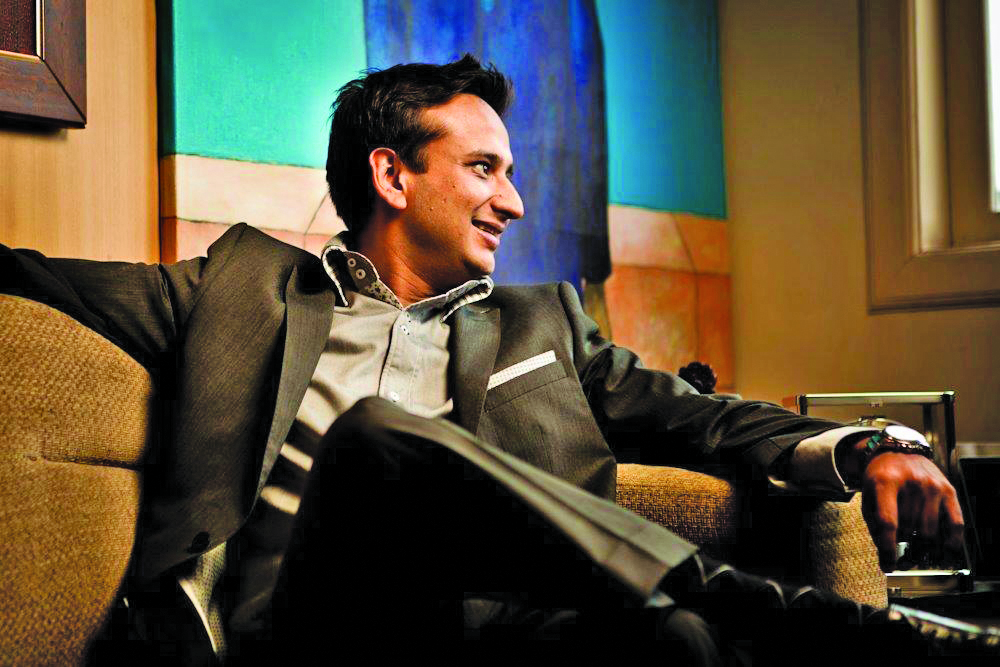First Nepal, now the world: Nirvana Chaudhary
Disproving the old saw about shirtsleeves to shirtsleeves in 3 generations, Nirvana Chaudhary is set on expanding his great-grandfather’s business across the globe.
In Nepal, Chaudhary Group (CG) is an inescapable conglomerate, and the family that owns it, business royalty. To summarise, it is by far Nepal’s omnipresent company (imagine a combination of AT&T, Bechtel, Kraft and Marriot) and the first multinational that the developing nation has produced. Having been started as a textile-importing business in 1870 by Bhuramull Chaudhary, it now employs more than 6,000 staff with a presence in 20 countries.
Bhuramull’s great-grandson, Nirvana Chaudhary, has the CV that might be expected of a billionaire’s son. He’s studied at prestigious educational institutions across the globe – India’s Doon School, Harrow and MIT – played squash for his country, collects art, and is involved in various philanthropic ventures, particularly his family’s foundation. But Nirvana’s hunger sets him apart from most of his fellow scions.
While studying in London, he worked as a waiter in a Nepalese restaurant. From the age of 15, he spent school holidays working in the family business, starting off delivering cartons of beer around Kathmandu. At 22, he started his own financial services company, CG Finco. Now 35, he’s growing Chaudhary Group from a Nepalese enterprise to a world-conquering one.
Nirvana Chaudhary nurtures staff and stakeholders
Nirvana’s first task upon taking over the family business was to impose a more conventional corporate structure on a conglomerate made up of many divergent businesses. "At the time, there were 84 companies in the group, a figure that’s since climbed to 112," he says. "We arranged all those businesses into 11 verticals, put the focus on core business areas such as FMCG, hospitality and financial services, and created a flatter and more professionally run organisation."
Nirvana also invested in top talent. "We built strong corporate-finance and business-development teams," he says. "Alongside that, we introduced a lot of IT systems, such as SAP’s ERP software, as well as leadership-development programs."

The goal now is to be the first Nepalese company to become a global force.
A fan of the saying "the hand doesn’t clap by itself", Nirvana also set about nurturing relationships with stakeholders, particularly suppliers. "All stakeholders are crucial to the success of any product and service," he says. Nirvana likes to illustrate this philosophy with reference to how CG came to dominate Nepal’s potato chip and noodle markets.
"We could have just imported the potatoes for our chips but what we did was import the seeds, then train local farmers on how to grow them," he says. "Likewise, with noodles, CG could have begun producing its own wheat flour or packaging, but we concentrated on building the brand and distribution network. We let other companies supply the ingredients and wrapping. As long as they take note of our feedback and continue to innovate, the success of our suppliers can only help CG."
Turning Chaudhary Group into a global force
Space doesn’t permit a full list of Nirvana’s business goals, but his plans for the FMCG vertical indicate the scope of his ambition. "We’ve currently got 15 plants in Nepal and India producing FMCG, particularly noodles," he explains.
"As well as adding many more plants in those countries, we want to open 10 plants in 10 new countries over the next 3 years. We want plants in Bangladesh, Egypt, Iran, Saudi Arabia, Serbia and Russia, plus one somewhere in East Africa and one in Latin America. Some other things we’re excited about building are hydropower plants and other infrastructure, opening a chain of cinemas, partnering with Uber, and launching an online payments system."
Others must be daunted by such a to-do list, but Nirvana is thrilled to be crafting a globe-spanning enterprise on the solid foundation created by his predecessors. "While CG might be a transnational company from a small country, we have big dreams," he says.
"Our brand in Nepal is better known and more trusted than Coca-Cola. The goal now is to be the first Nepalese company to become a global force. Given CG’s track record and reputation, as well as what our now world-class business systems and strong management teams are capable of, we’re sure we’ll get there."